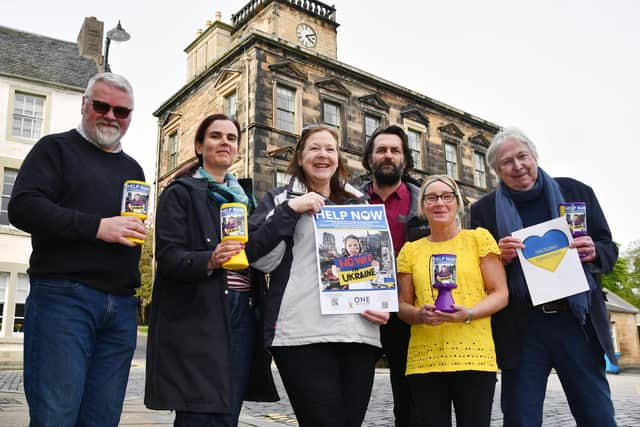More than 100 West Lothian families drop out Government Ukrainian refugee plan
and live on Freeview channel 276
A meeting of the support network gathered by West Lothian Voluntary Sector Gateway heard that while more than 70 Ukrainians have been successfully settled in the county under the Homes for Ukraine Scheme, a Scottish government scheme has faced difficulties.
Of the 200 local families who joined the Holyrood Super Sponsor scheme, more than 100 have dropped out.
Advertisement
Hide AdAdvertisement
Hide AdAlison White, director of West Lothian Health and Social Care Partnership told the meeting: “Out of that initial 200 we have 59 families who have actually withdrawn.
"They have said they are no longer in a position to host a family at this time. We have also had 26 who, for whatever reason, the property isn’t quite suitable or have other issues that mean we have needed to pull out.”
A further 23 families have gone to ground.
“We had 23 people who came forward that we have not been able to get in contact with at all. We have phoned, we have left messages, we have sent email and we are not getting contact from them in any way shape or form”, added Mrs White.
The Super Sponsor scheme was set up by the Scottish Government after the Homes for Ukraine programme. It is a nationally managed one where COSLA, the local government umbrella organisation, matches refugees to families. The only input from West Lothian Council is in carrying out house safety checks and managing the disclosure process which the families have to carry out, although the council can offer COSLA some local help on matching families.


Advertisement
Hide AdAdvertisement
Hide AdThe Scottish Government announced last week that it would pause the Super Sponsor scheme for three months.
Mrs White said: “There have been a couple of breakdowns and we have offered support to both sides. Thankfully that has been a really small number and for the vast majority things seem to be going really really well, and the support seems to be working.”
Some refugees are staying in the Mercure Hotel in Livingston. This was initially as an overspill of numbers of people being managed by Edinburgh Council. Mrs White said that West Lothian Council had picked up the support for those living in the Mercure “in part because we are probably better placed, being in the locality”. Mrs White added: “We are offering ongoing support to people in the hotel.”
The council is currently working with these hotel residents to look at housing options with West Lothian. There are challenges because there is mismatch between the available stock of smaller homes and the families staying in the Mercure.
Advertisement
Hide AdAdvertisement
Hide AdOf the local families who committed to the sixth month host programme under the Homes for Ukraine scheme many are now three months in and there are questions as to what happens at the end of the six months. The council is still awaiting guidance from The Scottish Government on how the scheme will progress.
Social work teams have initial meetings with refugees and then follow ups within six weeks. They are also working with the council on providing access to training and English courses
The VSG meeting heard suggestions that the member groups could also offer volunteer work to refugees as a path into employment for refugees.
Chairing the meeting, Alan McCloskey the CEO of VSG said there was a need to look at a second phase of what could be done to develop the support programme in the longer term he proposed regular meetings of the support network which has input from agencies such as the DWP as well as council departments including the Advice shop, the Regeneration team and access to employment team.